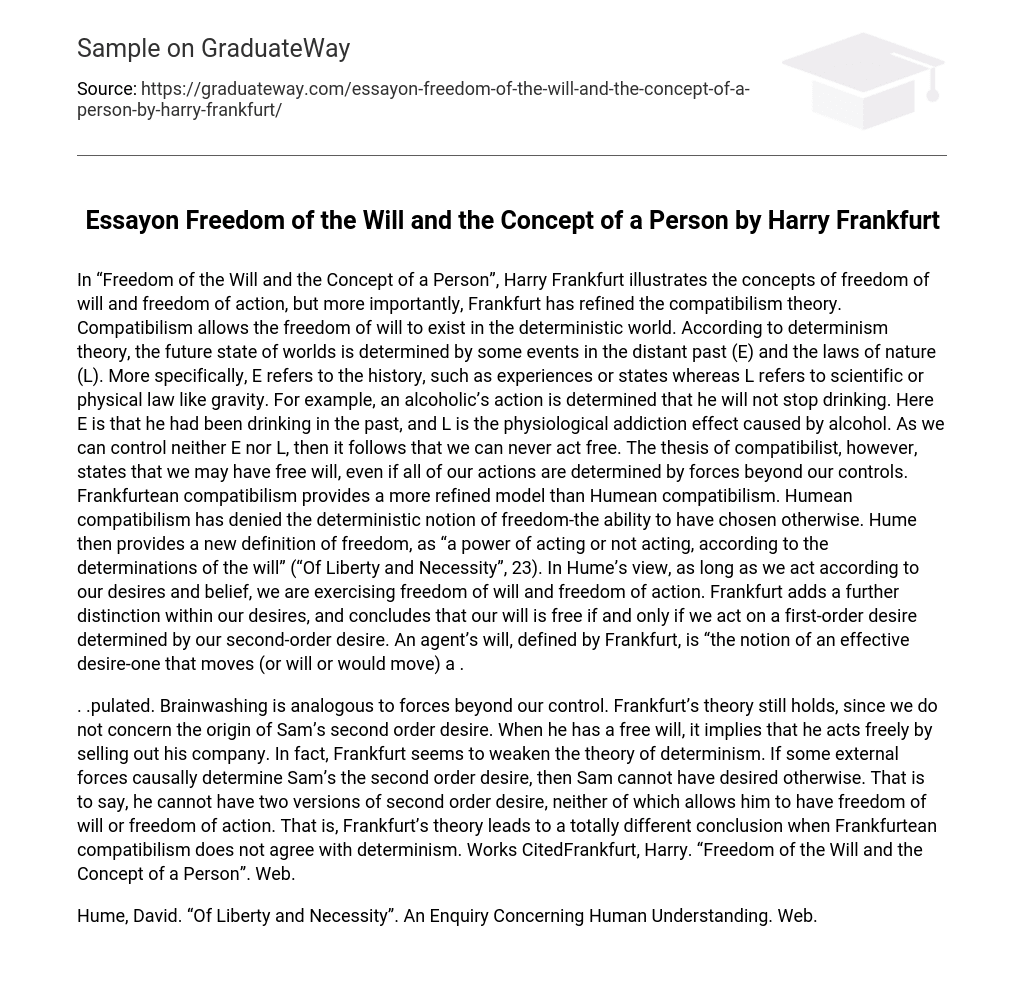Harry Frankfurt discusses the compatibility between freedom of will and freedom of action in his article “Freedom of the Will and the Concept of a Person.” He argues that these two freedoms can coexist with determinism, which is the belief that future events are influenced by past events (E) and natural laws (L). E refers to personal history or experiences, while L pertains to scientific or physical laws like gravity. For instance, an alcoholic’s inability to stop drinking is determined by their past drinking habits (E) and the physiological addiction caused by alcohol (L). Since we have no control over E or L, true freedom in our actions seems impossible. Nevertheless, according to Frankfurt’s view on compatibilism, even if external forces beyond our control influence our actions, we can still possess free will.
Frankfurt’s version of compatibilism differs from Humean compatibilism as it rejects the notion that freedom necessitates the ability to have made different choices. According to Hume, freedom simply means having the power to act or not act according to our will. As long as our actions align with our desires and beliefs, we are exercising freedom in both will and action. Conversely, Frankfurt posits that our will becomes free when we act based on a first-order desire determined by a second-order desire. In Frankfurt’s definition, an agent’s will represents an effective desire capable of causing action.
Frankfurt’s theory of determinism posits that external forces can determine an individual’s second order desire, which subsequently affects their free will and freedom to act. This concept is connected to brainwashing, where individuals may be manipulated to go against their own desires and beliefs. Nevertheless, Frankfurt’s theory also raises questions about the origin of these second order desires and how they impact free will. If someone like Sam possesses free will, it suggests that they are acting freely when making decisions such as selling their company. In this scenario, Frankfurt’s theory appears to weaken the argument for determinism since it implies that individuals can have multiple versions of second order desires with varying degrees of freedom in decision-making and action-taking. These complexities highlight the relationship between Frankfurt’s compatibilism and determinism.
Hume, David. “Of Liberty and Necessity.” An Enquiry Concerning Human Understanding. Web.





